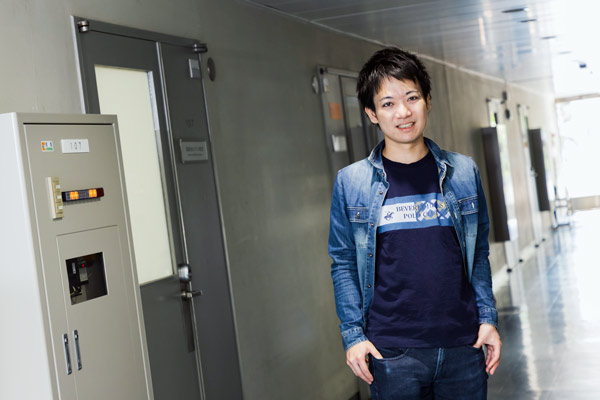Dec. 15, 2022
Looking for rules within quantum complexity
Tomotaka Kuwahara, Team Leader
Please briefly describe your current research.
My team aims to solve the most important unsolved problems in the field of quantum information. To do this, I look at Hamiltonian complexity. The Hamilton of a system is the sum of its kinetic energy (energy of motion) and its potential energy (energy of position). Hamiltonian complexity is the study of the universal structural constraints of a system of many interacting quantum particles—quantum many-body systems—due to these energies. Currently, my aim is to characterize via an information-theoretic lens the intrinsic complexity of quantum many-body systems and apply these understandings to the quantification, storage and communication of digital information.
What excites you the most about your current research?
Well, statements on Hamiltonian complexity are universal and can be written in mathematically precise ways. These laws may resolve great mysteries about how the world works. Physicists are also very keen to figure out how to solve quantum many-body problems using quantum/classical hybrid computers. However, understanding the computational complexity of a quantum many-body system is equivalent to completely clarifying the information-theoretic structure of the quantum many-body system.
How did you become interested in your current field of research?
I was initially puzzled about why our living world is so complicated despite having such simple fundamental laws. This, I discovered, may boil down to the essential difference between one-body and many-body problems. However, realistic quantum many-body systems are thought to be ‘not too complicated’. That is, realistic many-body systems are much simpler than typical theoretical ones. So I became interested in why our world has a moderate level of complexity in terms of physics.

What do you think has been the most interesting discovery in the last few years?
Recently, the ‘no low energy trivial state conjecture’, a previously unproven idea posed in 2014, has been solved. It had been a fundamental unresolved obstacle to applying a theorem, called the PCP theorem, to the quantum realm. The PCP theorem is a cornerstone of conventional computing, helping us to understand algorithmic complexity and the conditions of near-optimal solutions for optimization. This finding inspired me to work towards solving famous unsolved conjectures.
What other goals do you have at RIKEN and in your life?
I aim to lead a team that will increase the presence of Japanese researchers at the world’s most prestigious international conferences on quantum physics, such as the Quantum Information Processing conference and the Theory of Quantum Computation, Communication and Cryptography conference. Since I am a Christian, my ultimate goal is to follow in the footsteps of great Christian physicist predecessors like Isaac Newton, Michael Faraday, and Blaise Pascal. This always encourages me: “For I can do everything through Christ, who gives me strength” (Philippians 4:13).
Rate this article

